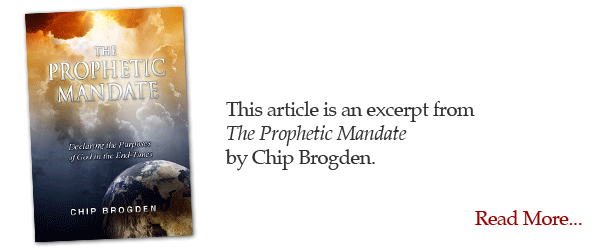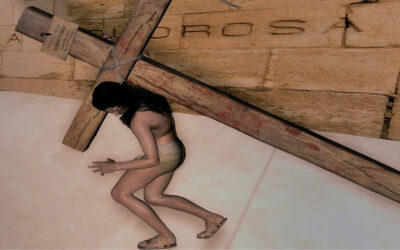So when the astronomer Galileo began to spread the idea of the earth and everything else revolving around a stationary sun, he attracted the ire of the Roman Catholic Church. Galileo provided a solid scientific basis for his ideas, and tried to show that his theories did not contradict Scripture at all. Nevertheless, Galileo was branded a heretic, forced to recant, and obliged to live the rest of his life as a prisoner in his own home. Today we know that the Roman Catholic Church was wrong, and Galileo was correct.
In a similar way, the Christian Religion has, for over 1700 years, successfully convinced millions of people to adopt a Church-Centered Faith. Scriptures are used to justify a view of the spiritual universe that is erroneous. It is a line of thinking in which everyone and everything connected with God is supposed to revolve around the Church: build it, support it, attend it, and invite people to join it. Christ, mistakenly credited with having founded this Church, is in their eyes obliged to protect, defend, love, honor, cherish, bless, and provide for it. Those who challenge this view are likewise seen as rebellious heretics.
The truth is that God never called us to a Church-Centered Faith. From the beginning, God has called followers of Jesus to a Christ-Centered Faith: a way of living that revolves around Christ having the central, preeminent, and most important place in a person’s heart. The Assembly of Called-Out Persons (the Ekklesia) was to be both a spiritual and a practical community of Christ-followers who had entered into a new covenant with God and with one another: to value, believe, teach, practice, and experience a Christ-Centered Faith.
That is simply another way of saying that the belief and practice of the New Testament was based upon, and centered around, a relationship with a Person. The focus was not on the systematic theology of a new religious group, nor was it the particular nuance of doctrine from a breakaway splinter group within Judaism. New Testament belief and practice was unique in that it was centered upon a Man Who lived, died, came back to life again, and would now rule in the hearts of men and women until He returned. You could say that in the New Testament universe, God clearly established that everything was to revolve around the SON.
If the foundations are destroyed, what can the righteous do? I believe the answer, as it pertains to the Ekklesia, is to go back to the One Foundation that cannot be destroyed: Christ Jesus the Lord. “For no other foundation can anyone lay than that which is laid, which is Jesus Christ” (1 Cor. 3:11). This Foundation is strong and secure.
We must tear down the flimsy structures we have built and rebuild upon the firm foundation of Christ. I offer the following Four Pillars as a basis upon which the Ekklesia can re-establish itself in the current age and ensure the continuity of an authentic, Biblical, Christ-Centered Faith for this generation and for however many will follow.
- The Testimony of Jesus. The preeminence of Christ must be the cornerstone of all our belief and practice. Remember, this Testimony declares that “all are saved in Him, none are saved apart from Him.” This Testimony inspires all prophetic utterance. This Testimony is our lamp, and if the lamp is extinguished, the Ekklesia ceases to exist (Rev. 2:5). We cannot dilute, distort, or disfigure this Testimony for any reason. If we fail to discern and declare the truth concerning Jesus to the world around us, then we have utterly failed.
- Scriptural Integrity. Before we seek new, exciting revelation we must master what has already been revealed. The Scriptures are necessary for the spiritual growth and spiritual discernment of the Ekklesia. The Written Word reveals the Living Word, and the Living Word reveals the Written Word: “Then Jesus took them through the writings of Moses and all the prophets, explaining from all the Scriptures the things concerning Himself” (Lk. 24:27, NLT). Since Jesus thought Scriptural teaching was important for His disciples, we cannot afford to lightly dismiss it. We must know the Scriptures, obey them, and teach them to others.
- Intentional Fellowship. The post-church landscape is a lot like the Dark Ages after the Roman Empire collapsed; with no institution to keep them in check, people ran wild. In the absence of the Institutional Church, the Ekklesia must provide safe places where people can learn about Jesus in a non-religious, non-traditional setting. Intentional Fellowship means that we gather together for a purpose: to reach up to God, to reach in to one another, and to reach out to the world around us. We must transcend the “meeting” mentality we inherited from the Institutional Church and begin to think in terms of an extended Family that nurtures long-term relationships and meets both spiritual and practical needs.
- Passing the Torch. To successfully hand down a Christ-Centered Faith to the next generation, three things are needed. First, we must master the core teachings that constitute basic discipleship; those essential elements of the Faith that need to be passed down. Next, we must find and equip faithful people who know these essentials and will teach them to others. Finally, we must create opportunities for real discipleship to take place within the faith community of the Ekklesia – a nurturing, safe place to be born-again, to be healed, to learn, to grow, and to go forth; a place where spiritual wisdom can be imparted.













